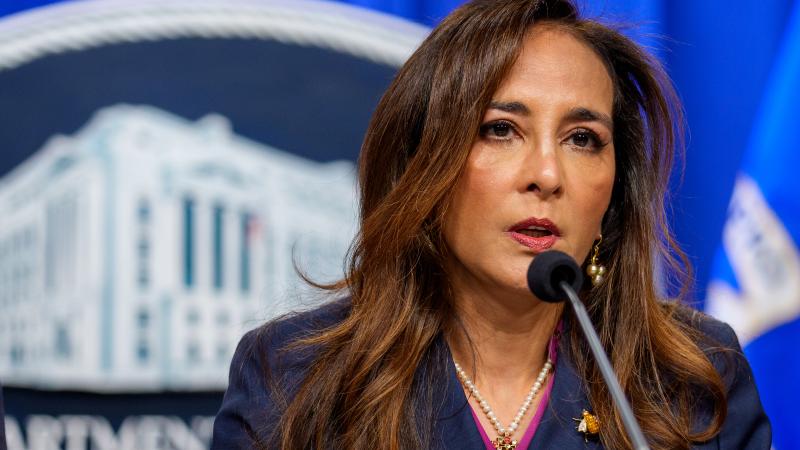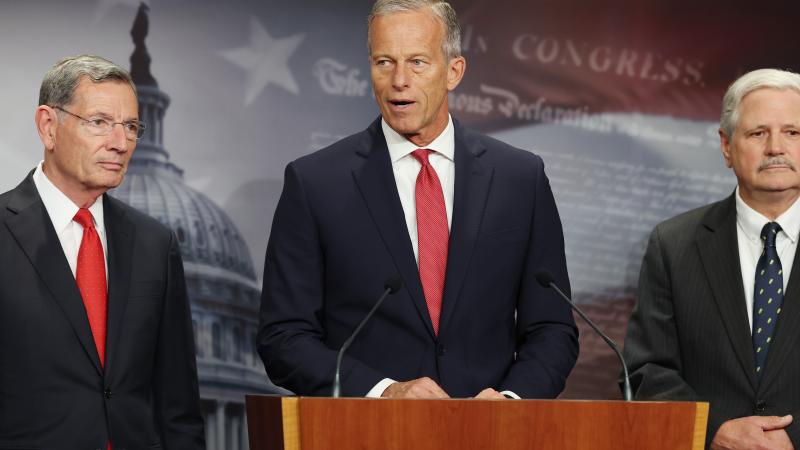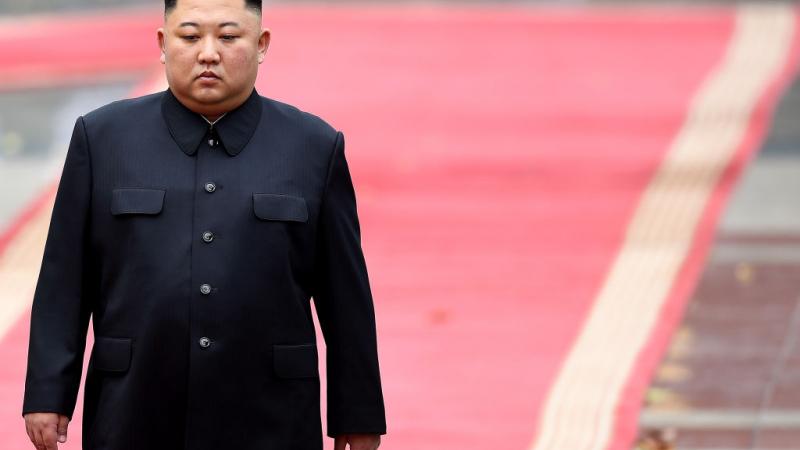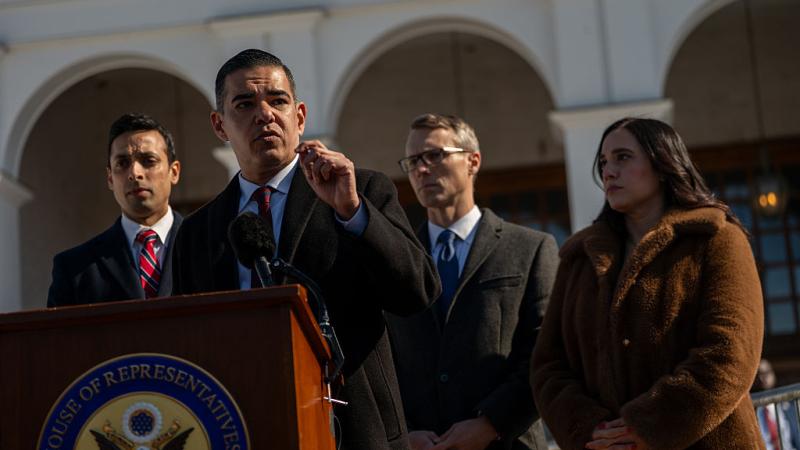An 'unreasonable bond' and a 'victimless crime?' Trump gears up for appeal of civil fraud ruling
Former President Trump got a break on Monday when a New York appeals court reduced the bond in his civil fraud trial from $464 million to a more manageable $175 million.
On Monday, a New York appeals court reduced former President Donald Trump’s bond in his civil fraud trial from nearly half-a-million to $175 million while he appeals the ruling. This is a drastic cut for the high bond ordered by Judge Arthur Engoron, which was originally set at $464 million.
Though there are few civil fraud trials to compare with the former president’s, a review of recent bonds set in criminal fraud trials in the United States shows that the bond was likely set unusually high, exceeding the bonds established for some of the nation's most notorious fraudsters—including Sam Bankman-Fried and Bernie Madoff.
The case against Trump was brought by New York Attorney General Letitia James, who argued in a sweeping case that the former president manipulated the value of his assets to secure favorable loan terms among other benefits. She originally sought a $370 million penalty and to bar Trump from operating his businesses in New York. Judge Engoron ultimately ruled against Trump, granting the Attorney General’s proposed remedies.
Trump's team also seeks to distinguish his case from other notorious civil and criminal financial frauds, claiming prosecutors have been unable to show any victims.
“There were no victims because the banks made a lot of money,” Trump said in February, according to USAToday which reported that "Trump lawyer Christopher Kise told Engoron in closing arguments “There’s no real-world impact, there’s no fraud victims.” He has echoed these statements since his trial late last year.
One legal expert with extensive prosecution experience agrees. Others believe Trump’s defense team will hone in on this argument as the case proceeds in the New York appeals court, provided he can pay the reduced bond, now set at $175 million.
“You don’t have to be a lawyer, just an average American citizen, to understand this process seems unfair and unreasonable,” David X. Sullivan, a trial lawyer and former Assistant United States Attorney for the District of Connecticut, told Just the News on Monday.
“Judge Engoron issues a 92-page decision—in a case with no victims and no financial loss to anyone,” he said. “I believe all parties benefited from the transaction,” he added. In fact, Deutsche Bank, one of the supposed victims of Trump’s alleged ill-gotten gains has refrained from filing a lawsuit against the former president.
“Who was that [judgement] awarded to? As I said, there were no victims,” Sullivan said.
In November, former cryptocurrency tycoon Sam Bankman-Fried was found guilty of defrauding his customers a total of $8 billion dollars. The jury convicted him on two counts of conspiracy and five of fraud following his trial in New York.
In November 2022, investors had lost faith in his firm, FTX, and sought to withdraw their investments, leaving the company unable to fulfill the requests, leading the company to collapse. Prosecutors alleged Bankman-Fried “orchestrated a years-long fraud” to divert funds from FTX to a sister firm, Alameda Research—a hedge fund. Bankman-Fried used some of the money to purchase beachfront property and donate heavily to U.S. political campaigns.
By December of that year, shortly after Bankman-Fried was extradited to the United States from the Bahamas—where he was living at the time—he was released on $250 million bail after initially failing to post a lower, $250,000 bail. The value of Bankman-Fried’s bond, which was later revoked after he was accused of witness tampering, stands in stark contrast with Trump’s bond, which was nearly double the size.
Bankman-Fried’s case and Trump’s case are further contrasted by the impact on victims. Ahead of the cryptocurrency fraudster’s trial, prosecutors released several impact statements taken from victims of the scheme.
“[W]e entrusted FTX with our hard-earned savings, believing in the integrity of the platform and the digital assets it facilitated,” said one unidentified victim, according to industry media outlet Cointelegraph. “However, the abrupt downfall of FTX has not only resulted in a substantial financial loss of over $19,000 at current prices but has also shaken the very foundation of our trust in the digital asset space.”
The now-infamous Bernie Madoff was arrested in December 2008 after he defrauded individual and institutional investors of billions of dollars. Ultimately he pled guilty to fraud charges and was sentenced to 150 years in prison.
In total, Madoff stole $20 billion in assets. By 2023, the Madoff Victim Fund had recovered about 91% of the victims’ total losses, according to Forbes. The fund, which operates under the Justice Department, has paid out compensation to a total of 40,843 victims. It is unclear when Madoff’s scheme began, however, differing accounts indicate he began sometime between 1960 and 1992, according to CNN Business.
Madoff, widely recognized as one of the most notorious fraudsters of all time, was assigned a $10 million bail after he originally pled guilty the billion-dollar Ponzi scheme. Even adjusted for inflation—the bond would be worth about $14 million in today’s dollars—this about 2% of the civil judgement and bond leveled against former President Trump. In further contrast, none of Trump’s alleged victims have sued or brought forward complaints about the business arrangements, while the number of victims in Madoff’s case is staggering.
Judge Engoron even asked prosecutors to describe how Trump’s case compares to Madoff’s scheme. The prosecution admitted Trump’s alleged fraud was “smaller” than Madoff’s.
“How would you compare the fraud you're alleging to the Madoff Ponzi scheme?" the judge asked. “I mean, it's smaller, in that there is a smaller amount of people affected, smaller dollar number,” Kevin Wallace, a lawyer for Attorney General James, said.
Legal experts believe an argument that Trump’s was a “victimless crime” will likely be the focus of the former president’s appeal, now pending before a higher court. But, they also say New York law does not require specific victims.
"It seems clear that Mr. Trump’s lawyers will argue that the attorney general and the court overstepped here because there were no clear victims in this case,” Alexander Reinert, a law professor at Cardozo Law School told USA Today in February.
"I think the AG will respond that, first, the law does not require she demonstrate specific victims," Reinert continued. "But, even if showing a victim were necessary, here the banks were victims because had they known the true value of Mr. Trump’s assets they would have been able to charge a higher interest rate on their loans,” he added.
But, before Trump and his legal team can appeal the Judge Engoron’s ruling, he must pay up. On Monday, the New York appeals court temporarily stayed the lower court’s ruling, reducing the former president’s bond to $175 and setting a new, 10-day deadline.
Trump has promised to pay the new bond, vowing to “put up cash” at a press conference after the new ruling.
“I greatly respect the decision of the appellate division and we will abide by that,” Trump said.
The Facts Inside Our Reporter's Notebook
Links
- New York appeals court reduced
- argued in a sweeping case
- according to USAToday
- a 92-page decision
- convicted him
- sought to withdraw their investments
- used some of the money
- said one unidentified victim
- CNN Business
- asked prosecutors to describe how Trumpâs case compares
- told USA Today in February
- a press conference















